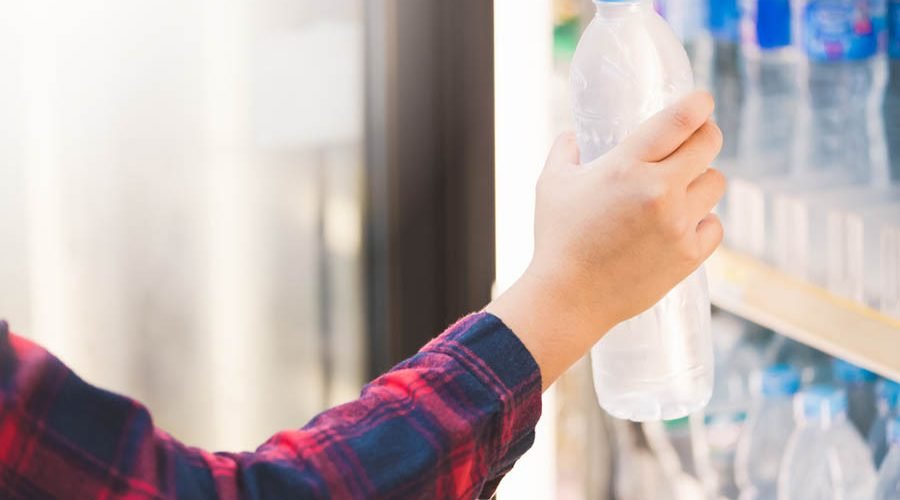If you’re looking to add bottled water to your vending machine, you’ll want to know a few things before you go ahead. You’ll need to find a way to sanitize the water you’ll be giving customers and ensure that it’s safe to drink. Also, you’ll need to make sure that you have a filtration system in place that will give you quality water for your machine.
Table of Contents
Dasani bottled water filtration system
One of the most popular brands of bottled water in the United States is Dasani. The brand is owned by Coca-Cola and has been around for more than two decades.
In terms of its filtration system, Dasani uses a four-step process. This consists of a reverse osmosis technique, which removes chlorine, dirt, and bacteria. It then filters out the remaining contaminants.
Another step is to recycle the bottles using the PlantBottle technology. This is a recyclable plastic bottle made from up to 30% plant-based materials.
Aside from being eco-friendly, the plant-based material reduces carbon emissions by 25 percent. The best part is that the packaging has the same odor-free taste and smell as other Dasani water.
Dasani is not the only beverage company with a plan to get more people to switch from their tap to filtered water. Other companies, including PepsiCo Inc. and Safeway grocery chain, are doing their share to make drinking water a more sustainable choice.
However, there are a few problems with Dasani’s scheme. First, the company has no plans to remove plastic bottles from its shelves anytime soon. Second, the bottle is only about 20 ounces in size.
Third, while it’s impressive, the company hasn’t actually put any scientific or statistical analysis on how its water-filtering system works. While the company claims that its product is the first of its kind, the true story is that it is the second.
Lastly, the newest version of the product – called the Dasani PureFill – is on its way to colleges and workplaces. This system dispenses sparkling and still water, and gives customers the option to refill their own bottles. Until now, only college campuses had access to the machine.
If you’re looking for a healthier alternative to your tap water, then you’ll want to consider installing a bottled water filtration system. By doing so, you’ll save money while giving your family a healthier option. Not only will you be helping the environment, but you’ll also be giving your employees a break from the dreaded mug of tap water.
Quality control of the water produced by the operator of the vending machine
Quality control of the water produced by the operator of a vending machine is important. In addition to the federal regulations, the National Automatic Merchandising Association (NAMA) also has guidelines for the industry. These guidelines include regulations regarding labeling, maintenance, service, and quality testing.
The NAMA has been educating and regulating the vending industry for over thirty years. They have a thorough program for testing and evaluating the water dispensed by vending machines from top vending machine sellers.
Water vending machines must meet the requirements of the Safe Drinking Water Act (SDWA). According to the law, the operator of the vending machine must test the water for microbial and chemical contamination, and keep the machine in good working order. However, it is not required to label the water as purified or medicinal.
The California Department of Environmental Health has to inspect the water vending machines in California. Every six months, they must perform bacteriological analysis and conduct chemical tests. While the state’s report exonerated the operators of the vending machines, some criticisms were voiced. A few machines were found to have high levels of heterotrophic bacteria.
Most of the units were located in Coachella. Some of the units had been reported by the local agency to have high HPC levels.
As part of the study, 794 WVMs were randomly sampled and inspected. Each sample was tested for coliforms and HPC. Almost all of the source water samples had HPC levels below 500 cfu/ml, but some units had higher HPC levels.
Unlike bottled water, the water from the vending machine was dispensed in individual paper cups. Vending machine labels can also not be misleading because they may not describe the water as being purified.
The FDB conducted statewide random sampling and inspection of 794 WVMs. All of the sample machines used public drinking water.
A sample was collected from each unit and filtered using a field filtration membrane (FFM) apparatus. It contains a self-priming pump utility, a 5-gallon bottle of drinking water, a positively charged NanoCeram(r) filter, and a flow meter. Using ultraviolet lights, the water is sterilized before it travels through plastic tubing and the check valve.
Health benefits of drinking bottled water
The health benefits of drinking bottled water in your vending machine are not a new subject. Indeed, there is considerable qualitative and quantitative literature that has been produced to explain why people choose bottled water over tap.
One of the most common reasons for choosing bottled over tap is the perceived safety of the product. Consumers may have a concern that bottled water will contain additives, chemicals, or sweeteners. However, the FDA has established “Standards of Identity” for bottled water products in the U.S. That is, it requires that all bottled water labels list the ingredients and nutritional information.
Other popular reasons include taste and convenience. In France, researchers have found that consumers prefer bottled over tap for the taste.
There is also some evidence that bottled water can be a healthy alternative to sodas and other sugar-sweetened beverages. This is because bottled water is calorie-free, which can help to limit the amount of sugar consumed.
Bottled water is available from a variety of sources, including surface waters, volcanic springs, and wells. Some of these sources have higher mineral content than tap water. It is important to read the label and choose water that is fortified with electrolytes and vitamins.
Although a reputable study found no direct correlation between bottled water and better health, it did find that people believe that the product has certain health benefits. Most participants did not think that the health benefits were significant.
However, many of the participants did not believe that the product had any health benefits at all. These participants were predominantly limited consumers. They drank 0.5 to 3.5 liters of bottled water per week.
Nevertheless, the American Waterworks Association studied the behavior of bottled water drinkers and found that a majority of them were satisfied with the drink. Among these, the healthiest was the one that was most likely to be chosen.
For this study, a number of factors were considered, from cost to taste to odor. Convenience and taste were the two most prominent.
Interestingly, the odor-related health benefit was the least cited in the study. Nonetheless, it is a good idea to choose bottled water that has a high mineral content.
College campuses that have banned bottled water
The ban on selling plastic bottled water has spread across college campuses in recent years. More than a dozen schools have made the move. This includes Washington University in St. Louis, Seattle University, Belmont University, Colgate University, Cornell University, and others.
The movement is gaining steam among eco-conscious students. These colleges are attempting to curb their carbon footprint, as well as the wastefulness associated with single-use plastic bottles.
Several colleges have installed “hydration stations” at campus locations to make it easier for students to get a refill on reusable bottles. Some colleges have even distributed branded water with the school’s logo at alumni events.
In January, the University of Vermont announced that it would stop selling single-use plastic water bottles. Next year, the University will install hydration stations on its campuses. It will also limit the sale of bottled water in its dining halls.
Several Iowa universities have been installing filling stations. Many of the largest schools have contracts with beverage companies, such as Coca-Cola. As part of the campaign, the University of Iowa has also added gooseneck-shaped spouts to its drinking fountains.
Another nationwide campaign, “Take Back the Tap,” has been encouraging students to drink tap water instead of purchasing bottled beverages. The campaign has been in place since January.
Many collegiate athletes receive bottled water during practice. They also may turn to their vending machines when they are thirsty. However, these vending machines don’t meet the government’s mandate to serve at least three healthy beverages.
A recent survey of 100 colleges and universities in the U.S. found that only one in five schools have a complete ban on the sale of plastic bottled water.
The bottled water industry responded by posting a video on YouTube, poking fun at “Ban the Bottle” and promoting recyclable packaging. Manufacturers say their product is healthier than tap water, and it’s easy to recycle. But the water industry also notes that students may be misinformed.
Although a number of colleges are considering banning the sale of bottled water, some schools are still experimenting with the idea.





